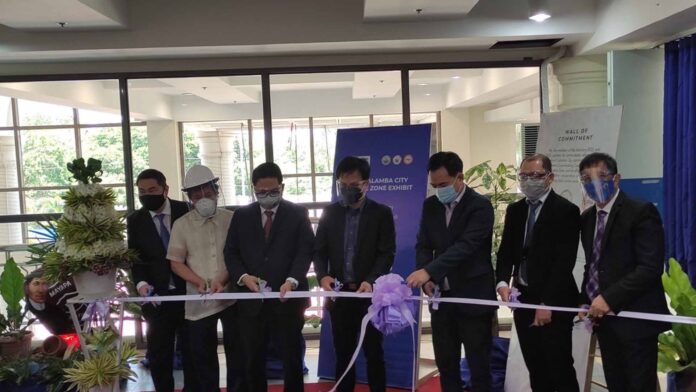Following the JSCC Joint Resolution 01-2021 recently signed by the Justice Sector Coordinating Council (JSCC), Calamba City launched their Justice Zone, making it the seventh Justice Zone established in the country and the first in the CALABARZON region.
A Justice Zone serves as an area where the local justice sector agencies develop and implement common solutions to address common problems through an agreed structure and two-way communication with the Justice Sector Coordinating Council (JSCC).
Calamba City was recommended to be a Justice Zone by the Regional Development Council of the National Economic Development Authority after extensive consultations with the justice sector agencies in Region 4A.
According to Executive Judge Glenda Mendoza-Ramos of the Regional Trial Court (RTC) in Calamba City, the launch of the Calamba City Justice Zone will help further enhance the justice system to better serve the local constituency.
“By institutionalizing the collaboration of these institutions, better cooperation is to be expected,” said Executive Judge Ramos. “Quarterly meetings will help us promptly address the issues concerning the implementation of justice such as the decongestion of court dockets and jails, and the implementation of law and rules.”

Part of Calamba City’s strategic framework is to improve its agency and court management system, utilize Information Communication Technology infrastructure in the judicial process and to decongest the city’s jails and detention facilities.
To-date, the Department of Interior and Local Government, through the efforts of Congressman Joaquin Chipeco, Jr., legislated laws creating two additional municipal trial courts in cities, four regional trial courts and a family court.
The Calamba City Judiciary, by jurisprudence and remedial law, allowed the plea bargaining of drug cases which significantly decongested court dockets. Rules of procedure on continuous trial were also implemented.

Meanwhile, the Calamba City Bureau of Jail Management and Penology (BJMP) established its own rehabilitation programmes and actively implemented the Good Conduct Time Allowance (GCTA) law.
The JSCC is supported by the Governance in Justice (GOJUST II) Programme of the European Union. GOJUST facilities increased coordination and cooperation in the justice sector through the JSCC at the national level and the rollout of the Justice Zones at the local level as the main mechanism for embarking on a long-term sustainable reform agenda.
“The programmes and funding by GOJUST significantly helped decongesting court dockets,” said Executive Judge Ramos. “It is worthy to mention that the Hustisyeah program, the implementation of the e-subpoena, and the provision of Court Decongestion Officers (CDOs) for the courts are proactive projects that helped a lot in speedy disposition of cases. Together with the implementation of the Rule on Continuous Trial, justice is swiftly served.”

“The EU strongly supports the creation of Justice Zones which is fully in line with the Justice Chapter on the swift and fair administration of justice included in the Philippines’ Development Plan,” said EU Ambassador to the Philippines Luc Véron. “The GOJUST II will help to strengthen the Philippines’ formal justice system to increase efficiency, effectiveness, and accountability.”
The first Justice Zone was launched in Quezon City in 2014. Justice Zones have also been established in the cities of Quezon, Cebu, Davao, Angeles, Bacolod, and Naga.
Calamba City has also been awarded the Seal of Good Local Governance in 2015, 2017 and 2018. The city was also ranked 4th in the 2020 Cities’ Municipalities’ Competitive Index published by the Department of Trade and Industry, and was named the 10th richest City in the Philippines by the Commission on Audit (COA) based on the city’s 2018 Annual Report.






